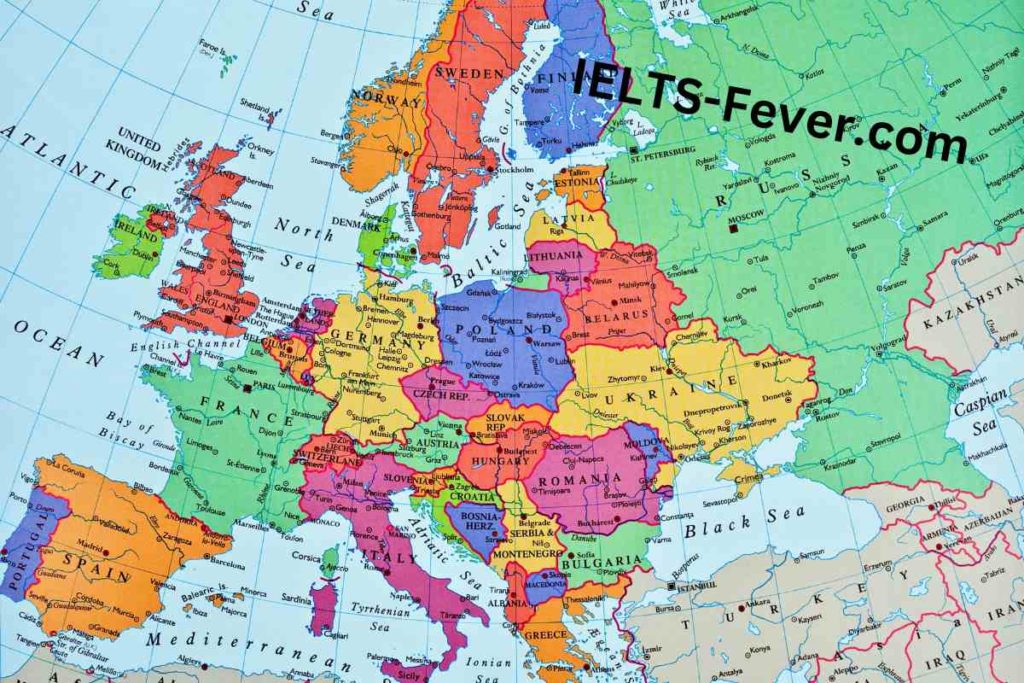Describe a person you know who is from a different culture. You should say:-
- Who he/she is?
- Where he/she is from?
- How did you know him/her?
- And explain how you feel about him/her.
Sample 1:- Describe a person you know who is from a different culture.
I am happy to describe a person I know who is from a different culture. Her name is Amira, and she is from Egypt. I met her while we were both studying at a university in the United States. Amira was pursuing a degree in biology while I was studying engineering. We met in a class that we were both taking and quickly became friends.
Amira is a very warm and friendly person, and she has a great sense of humour. She is also very proud of her Egyptian heritage and loves to share stories about her culture and traditions with others. I have learned a lot from her about Egyptian history, food, and music.
Despite coming from different cultural backgrounds, Amira and I have a lot in common. We both love to travel and explore new places, and we both share a passion for learning. Amira has been very open to learning about American culture and has even helped me understand some of the differences between our cultures.
Overall, I feel very fortunate to know Amira. She has taught me a lot about her culture and has helped me become more open-minded and accepting of people from different backgrounds. I think that our friendship is a great example of how people from different cultures can come together and learn from each other, and I feel grateful to have her as a friend.
Sample 2:- Describe a person you know who is from a different culture.
I would be happy to describe a person I know who is from a different culture. Her name is Lina, and she is from Lebanon. I met her while we were both working at a company in the United Arab Emirates. Lina was working in the marketing department while I was in the finance department. We got to know each other better through work-related events and eventually became friends.
Lina is a very friendly and outgoing person. She has a great sense of humour and is always ready to make people laugh. She is also very proud of her Lebanese heritage and loves to talk about her country’s history, food, and culture.
Despite coming from different cultural backgrounds, Lina and I have a lot in common. We both love to travel and explore new places, and we both enjoy trying new foods. Lina has introduced me to many delicious Lebanese dishes, and I have shared some of my favourite foods with her as well.
One thing that I particularly admire about Lina is her resilience. She has faced a lot of challenges in her life, including moving to a new country and dealing with personal struggles, but she has always maintained a positive attitude and a strong sense of determination. She is an inspiration to me and to many others who know her.
Overall, I feel very lucky to know Lina. She has taught me a lot about Lebanese culture and has helped me become more open-minded and accepting of people from different backgrounds. I think that our friendship is a great example of how people from different cultures can come together and learn from each other, and I feel grateful to have her in my life.
Follow-Up Questions:- Describe a person you know who is from a different culture.
Question 1:- Where and how can we get to know people of different cultures better?
There are many ways to get to know people of different cultures better. One way is to travel to other countries and immerse oneself in the local culture. Another way is to participate in cultural exchange programs or attend cultural events in one’s own community. Social media and online platforms can also connect people from different cultures and facilitate learning about other cultures. It is important to approach these interactions with an open mind and a willingness to learn and understand different perspectives.
Question 2:- What are the advantages and disadvantages of cultural diversity?
Cultural diversity can bring many advantages to society, such as an increased understanding and appreciation of different perspectives, opportunities for cultural exchange and learning, and a more diverse workforce that can bring new ideas and innovations. However, it can also bring challenges, such as cultural misunderstandings or conflicts, prejudice and discrimination, and difficulty in communication or collaboration. It is important to recognize and address these challenges to fully reap cultural diversity’s benefits.
Question 3:- How can traditional culture and other cultures coexist?
Traditional cultures and other cultures can coexist by promoting mutual respect, tolerance, and understanding. It is important to recognize the value and importance of traditional culture while also being open to learning and appreciating other cultures. Education and cultural exchange programs can help to facilitate this understanding and promote peaceful coexistence. Additionally, creating opportunities for cultural exchange and collaboration can help to bridge cultural gaps and promote acceptance of different perspectives. Overall, promoting cultural diversity and understanding can help traditional cultures and other cultures to coexist in a harmonious manner.
Question 4:- Which Indian traditions are disappearing?
India is a country with a rich cultural heritage, but many traditional practices and customs are disappearing in modern times. Some of the traditions that are at risk of disappearing include various forms of folk art and music, traditional forms of agriculture and handicrafts, and indigenous languages and dialects. Additionally, rapid urbanization and globalization are leading to changes in traditional family structures, social norms, and values. It is important to preserve and promote these traditions in order to maintain India’s unique cultural identity and heritage.

